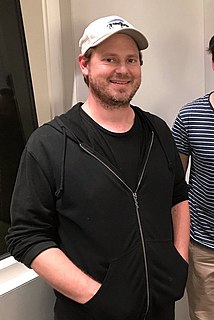A Quote by Jon Krakauer
He needed his solitude at times, but he wasn't a hermit. He did a lot of socializing. Sometimes I think it was like he was storing up company for the times when he knew nobody would be around.
Related Quotes
I used to work in an office in New York for this terrible company, and we used to have staff meetings, and I would just count how many times the boss would use the phrase "in terms of." And he would say it like 30 or 40 times. And sometimes he would just say it. He'd be like, "Uhh, in terms of, how are we doing with that?" I realized nobody knows what they're talking about. Everyone's bullshitting. Maybe not everybody, but certainly a lot of people.
In Jack Dempsey's early days he had a fight contract, which paid him two dollars per fight for the fights he won. He received nothing for the fights he lost. Jack Dempsey said that in his early days he was knocked down a lot of times and he usually was tempted to stay down because he knew that no one would hit him again until he started to get up. But Jack was a hungry fighter and he knew that if he was going to eat, he must get up in order to get the two dollars. He tells of one occasion when he was knocked down 11 times in one fight, and 11 times he got up in order to win the $2.
We’ve got to stick together, that’s all I know. We all drive each other crazy at times, but I don’t want to end up here alone, like the Hermit. Then this really would be Hell. Humans do such terrible things to each other that sometimes my brain tells me they must be evil. But my heart still isn’t convinced.
I just hope we can survive.
Jem’s eyes had widened, and then he’d laughed, a soft laugh. “Did you think I did not know you had a secret?” he’d said. “Did you think I walked into my friendship with you with my eyes shut? I did not know the nature of the burden you carried. But I knew there was a burden.” He’d stood up. “I knew you thought yourself poison to all those around you,” he’d added. “I knew you thought there to be some corruptive force about you that would break me. I meant to show you that I would not break, that love was not so fragile. Did I do that?
[Saint Anthony] said, in his solitude, he sometimes encountered devils who looked like angels, and other times he found angels who looked like devils. When asked how he could tell the difference, the saint said that you can only tell which is which by the way you feel after the creature has left your company.
I had a library of maybe 1,000 books in my room in Buenos Aires. I did have the sense that everything there was organised in the right way. You'll probably think I needed serious psychiatric treatment, but there were times when I would not buy a book because I knew it wouldn't fit one of the categories into which I had divided the library.
When you are in an international camp, you are together for 10 days. You eat three times a day together. You spend a lot of time in each other's company. That 10 days is very important ,and I think even times for training, times when you eat, meetings, this that and the other, a lot has got to change in that camp.
At times I have a beat first and then I write. Sometimes I have a melody in my head and I pick up the guitar to develop the song. Other times I just write without any melodies, and I end up using those lyrics when I think I have the appropriate instrumental that would bring out and depict the emotions of what I have written.






































